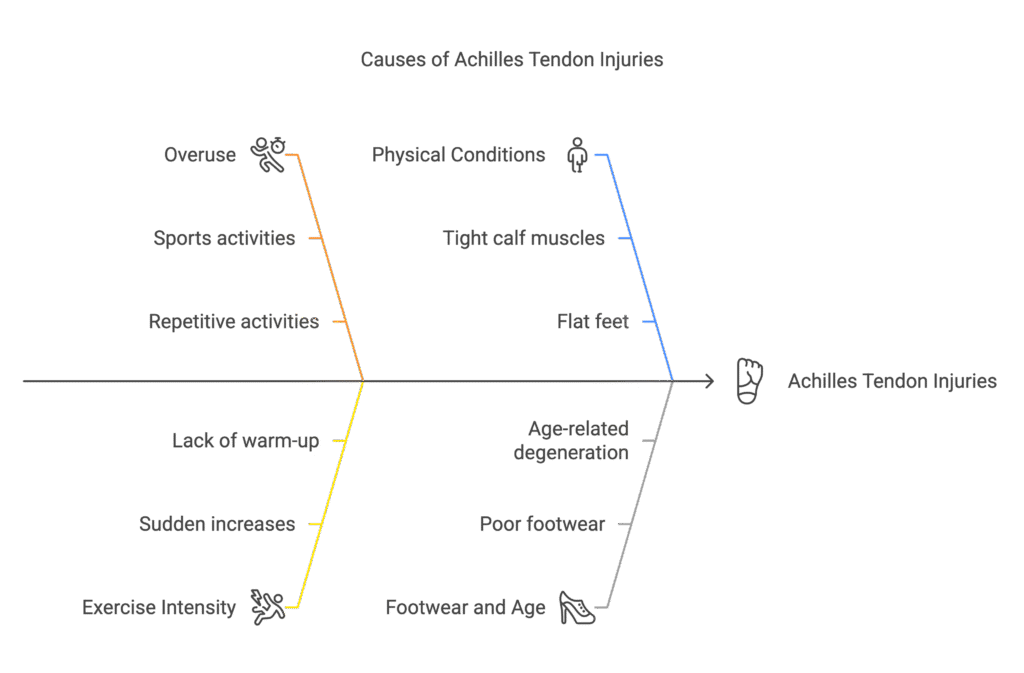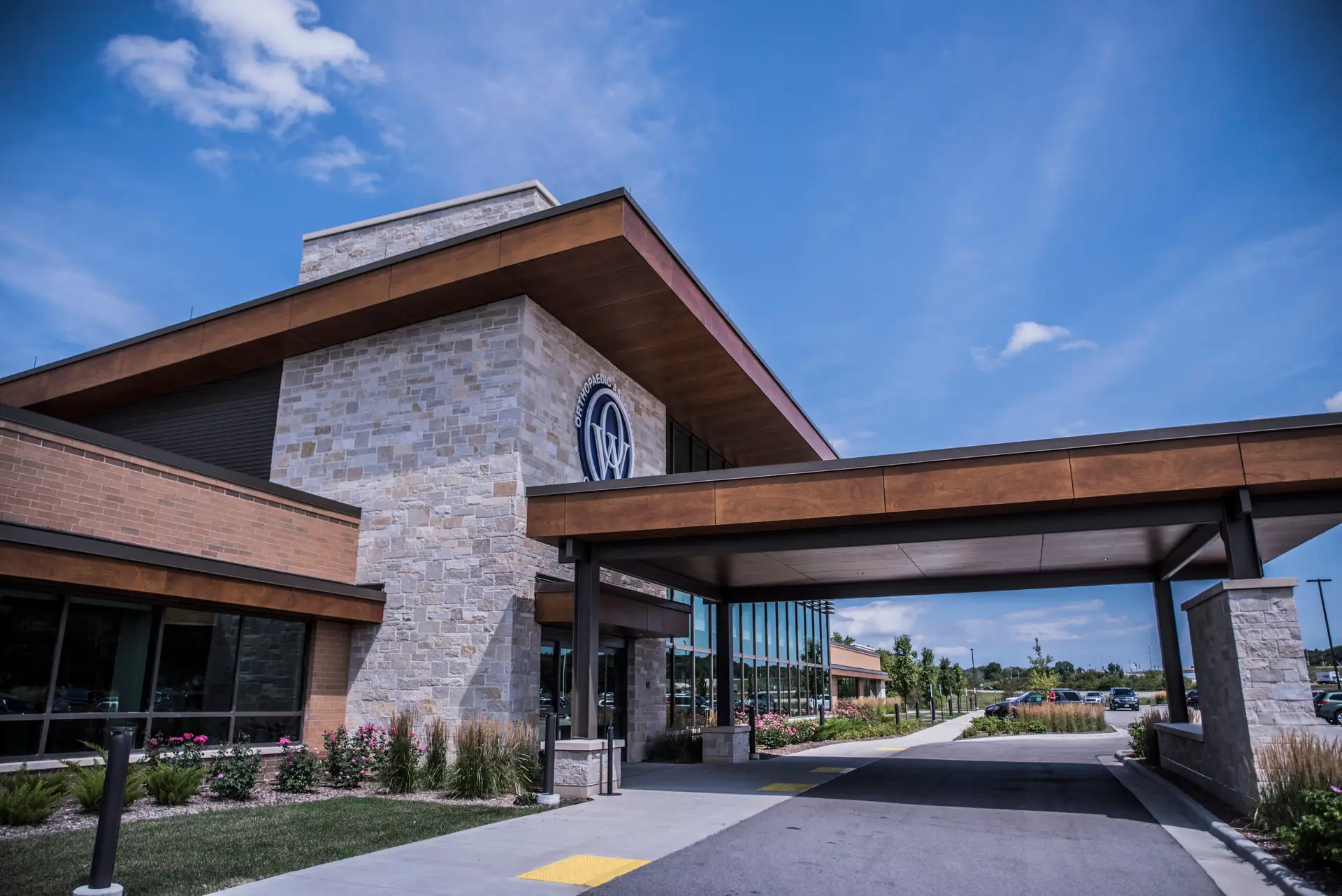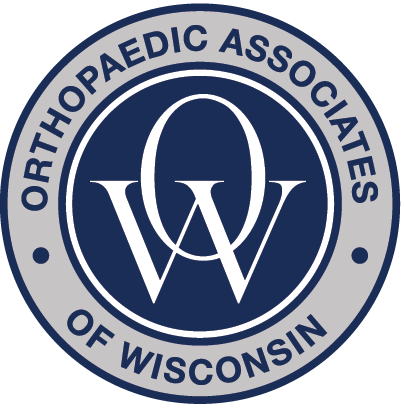Achilles Tendon Injuries
Understanding the Symptoms, Causes, and Treatment of Achilles Tendon Injuries
What Is the Achilles Tendon?
The Achilles tendon is the largest tendon in your body, connecting the calf muscles to the heel bone. It plays a crucial role in everyday activities like walking, running, and jumping. Because it endures significant stress, the Achilles tendon is vulnerable to injuries that can impact mobility and quality of life.
Common Achilles Tendon Injuries
There are two primary types of Achilles injuries:
Achilles Tendinitis:
Inflammation of the tendon due to overuse. It often causes pain, swelling, and stiffness, especially in the morning or after physical activity.Achilles Tendon Rupture:
A partial or complete tear of the tendon, usually caused by a sudden increase in stress or force. Patients often describe a “popping” sensation followed by sharp pain and difficulty walking.
Symptoms of Achilles Tendon Injuries
If you experience any of the following, it could be a sign of an Achilles tendon issue:
Pain and stiffness along the back of the heel or lower calf
Swelling near the heel
Difficulty flexing the foot or standing on tiptoes
A sudden sharp pain, often after a jump or sprint
A snapping or popping sound during injury
Early diagnosis and treatment are critical to prevent further damage.
What Causes Achilles Tendon Problems?
Several factors can increase your risk of an Achilles tendon injury, including:
Overuse from sports or repetitive activities
Sudden increases in exercise intensity
Tight calf muscles limiting flexibility
Flat feet or abnormal foot mechanics
Poor footwear lacking proper support
Age-related degeneration (more common after age 30)
Whether you’re an athlete or simply active, understanding these risks can help you protect your tendon health.

How Are Achilles Tendon Injuries Diagnosed?
At Orthopaedic Associates of Wisconsin (OAW), our experienced foot and ankle specialists begin with a thorough physical examination and may recommend imaging tests, such as an ultrasound or MRI, to assess the severity of the injury.
Treatment Options for Achilles Tendon Injuries
Treatment depends on the type and severity of the injury:
Non-Surgical Treatments:
Rest and activity modification
Immobilization with a walking boot or brace
Physical therapy to restore strength and flexibility
Anti-inflammatory medications
Surgical Treatments:
Repair of a ruptured Achilles tendon
Tendon debridement for chronic tendinitis
Our team develops a personalized care plan to help you safely and efficiently return to normal activities.
Preventing Achilles Tendon Injuries
You can lower your risk of Achilles tendon problems by:
Stretching your calves regularly
Strengthening lower leg muscles
Gradually increasing exercise intensity
Wearing supportive shoes
Listening to your body and resting when needed
Prevention is especially important for athletes and active individuals.
When to See a Foot and Ankle Specialist
If you’re experiencing persistent heel pain, swelling, or trouble walking, don’t wait. Achilles tendon injuries can worsen over time without the right care. Our board-certified foot and ankle surgeons at Orthopaedic Associates of Wisconsin specialize in diagnosing and treating Achilles tendon problems with advanced, patient-centered solutions.
Request an Appointment
Take the first step toward recovery today.
Schedule an appointment with an OAW foot and ankle specialist by calling 262-303-5055 or requesting a consultation through our online appointment form.
At Orthopaedic Associates of Wisconsin, we’re committed to getting you back on your feet — stronger than ever.
OUR FOOT AND ANKLE SPECIALISTS
Specialties:
Sports Medicine, Knee, Hip, Shoulder, Spine, Foot & Ankle, Elbow, Hand & Wrist
Specialties:
Knee, Shoulder, Sports Medicine, Foot & Ankle
Specialties:
Foot, Ankle, Knee & Sports Medicine
Ready to Take the Next Step Toward Relief?
If you’re experiencing foot or ankle pain, discomfort, or limited mobility, our orthopedic specialists are here to help. Request an appointment today and take the first step toward feeling better.





